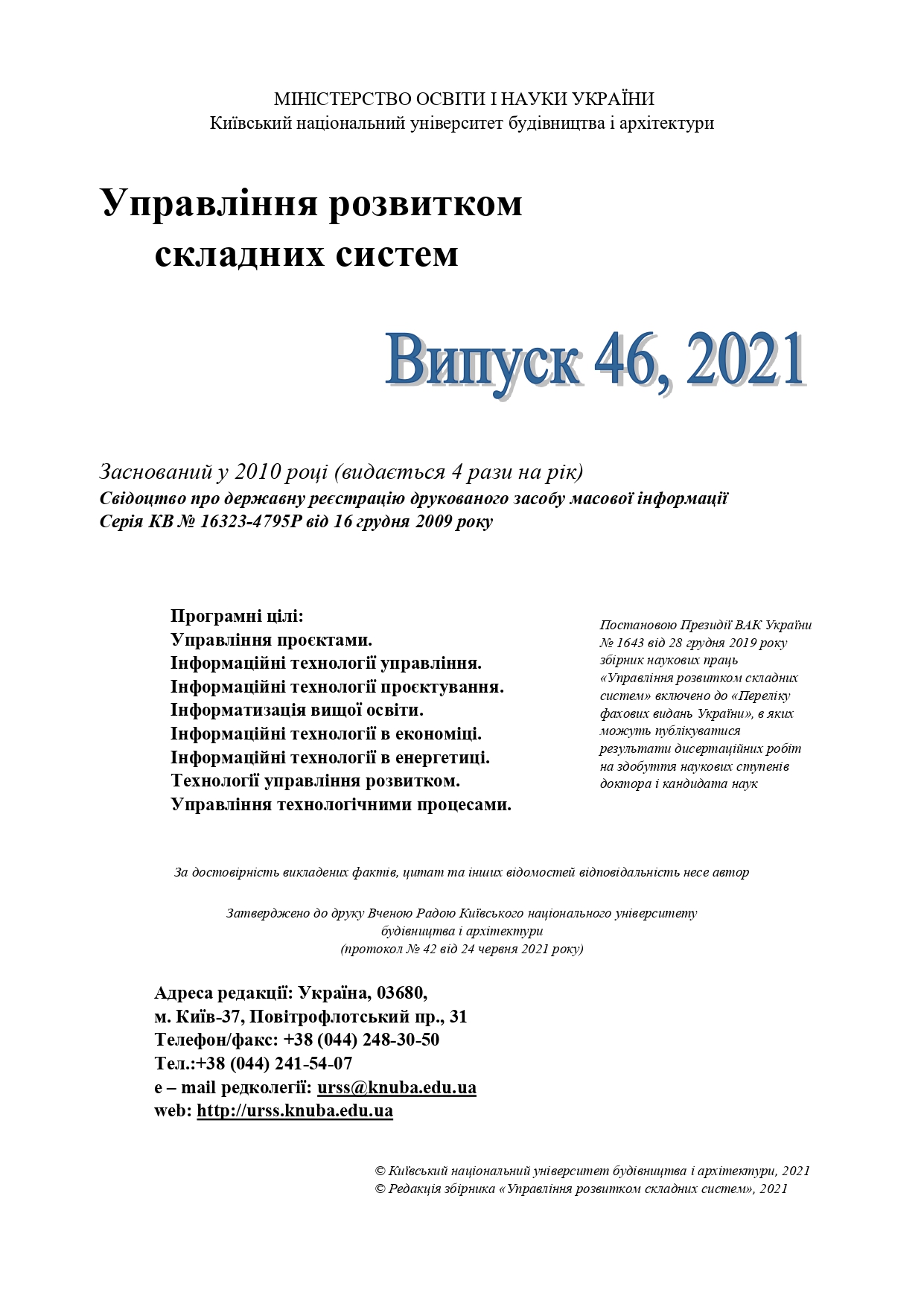HOW CAN TOYOTA MOTOR CORPORATION ACHIEVE SUSTAINABLE DEVELOPMENT
DOI:
https://doi.org/10.32347/2412-9933.2021.46.141-148Ключові слова:
Lean philosophy in Toyota, Toyota Motor Corporation, value of sustainability, business partners, Ecological valuesАнотація
For a lean enterprise which aims to construct sustainable development, we set a hypothesis that lean could bring the value of sustainability into the organization and try to explore the traveling process of sustainability value. The completion of this process also relies on the Japanese firm’s unique cultural and historical background. Furthermore, lean can contribute to sustainable development at the corporate level through continuous technology and process optimization. But strong sustainability implies that the enterprise needs to do more only than focus on eco-efficiency, and it depends on the senior management understanding of sustainability to some extent. For moral and practical reasons, realizing sustainable development needs collective decision making for the common good (Ball & Miline, 2005). If they determine their attitudes to ecological systems, natural and energy conservation will be a form topic in the company. Ecological values will become an essential criterion in the appraisement of corporate performance as well as traditional economic criteria. It will assist the firm to have a more reasonable production scale, and the usage of renewable and non-renewable resources will be more brilliant in the production. Finally, it will influence the values of the firm. But it may put the firm in an ethical dilemma caused by the conflicts between profits and future generation’s interest.
Посилання
Baxter, T., Bebbington, J. & Cutteridge, D. (2004). Sustainability assessment model: modeling economic, resource, environmental, and social flows of a project. Triple Bottom Line: Does It All Add Up? London: Earthscan, 113–120.
Bhasin, S. & Burcher, P. G. (2006). Lean viewed as a philosophy. Journal of Manufacturing Technology Management, 17(1), 56-72. https://doi.org/10.1108/17410380610639506
Hofer, Christian, Eroglub, Cuneyt, Hofer, Adriana Rossiter. (2012). The effect of lean production on financial performance: The mediating role of inventory leanness. International Journal of Production Economics, 138, 2, 242–253.
Hiromoto, T. (2009). The Management System for Autonomous Organizations: Wisdom of Japanese Management. Moriyama-Shoten, Tokyo (in Japanese).
Hadid, W., Mansouri, S.A. & Gallear, D. (2016). Is lean service promising? A socio-technical perspective. International Journal of Operations and Production Management, 36, 6, 618–642.
Okano, Hiroshi & Suzuki, Tomo. (2007). A History of Japanese Management Accounting. Handbook of Management Accounting Research Edited by Christopher S. Chapman, Anthony G. Hopwood, and Michael D. Shields.
Handfield, R., Walton, S.V., Sroufe, R., Melnyk, S.A. (2002). Applying environmental criteria to supplier assessment: a study in the application of the Analytical Hierarchy Process. European Journal of Operational Research, 141, 70–87.
IPCC Climate Change 2014: Mitigation of Climate Change (2014). Eds Edenhofer, O. et al. Cambridge Univ Press.
Knuf, Joachim. (2000). Benchmarking the Lean Enterprise: Organizational Learning at Work. Journal of Management in Engineering, 16, 4.
Jadhav, J. R., ManthaS S. S., Rane, B. (2015). Analysis of interactions among the barriers to JIT production: an interpretive structural modeling approach. J Ind Eng Int, 11, 331.
Katayama, H. & Bennett, D. (1996). Lean production in a changing competitive world: a Japanese perspective. International Journal of Production and Operations Management, 16, 2, 8–23.
Martin, J. R, Schelb, W. K., Snyder, R. C. & Sparling, J. S. (1992). Comparing U.S. and Japanese Companies: Implications for Management Accounting. Journal of Cost Management, 6-14
McNabb, D. & Sepic, F. (1995). Culture climate. Public Productivity and Management Review, 18, 2–13.
Milne, M. J. (1996). On sustainability; The environment and management accounting. Management Accounting Research, 7, 1, 135-161.
Moore, R. (2001). Comparing the major manufacturing improvement methods. Plant Engineering, 1–3.
Ohno, T. (1998). Toyota Production System Beyond Large-Scale Production, Productivity Process. New York, NY.
Otley, D. (1999). Performance Management: A Framework For Management Control Systems Research. Management Accounting Research, 10(4), 363- 382
Ledbetter, Phillip. (2018). The Toyota Template: The Plan for Just-In-Time and Culture Change Beyond Lean Tools. Productivity Press, 57-76.
Bhasin, Sanjay & Burcher, Peter. (2006). Lean viewed as a philosophy. Journal of Manufacturing Technology Management, 17, 1, 56-72.
Zongyi, Wang. (2021). Exploring the potential of lean philosophy to spread the value of sustainability in the Japanese automobile industry: the case of Toyota Motor Corporation. Management of Development of Complex Systems, 45, 176–181, dx.doi.org10.32347/2412-9933.2021.45.176-181.
Jollands, Stephen, Akroyd, Chris & Sawabe, Norio. (2015). Core values as a management control in the construction of "sustainable development". Quality Research in Accounting and Management, from http://hdl.handle.net/10871/17348.
Toyota Corp. (2001, 2018). Toyota Motor Corporation, The Toyota Way document. Retrieved from https://global.toyota/en/sustainability/report/
Netland, T. H. (2013). Company-specific production systems: managing production improvement in global firms. PhD thsis, Trondheim, Norwegian University of Science and Technology Faculty of Social Science and Technology Management Department of Industrial Economics and Technology Management, Trondhiem.
Monden, Yasuhiro. (1993). Toyota Production System: An Integrated Approach to Just-in-time. Industrial Engineering and Management Press, 423.
Whiteman, G., Walker, B. & Perego, P. (2013). Planetary boundaries: Ecological foundations for corporate sustainability. Journal of Management Studies, 50, 2, 307-336.
WCED. (1987). Our common future. Oxford: Oxford University Press. Retrieved from http://conspect.nl/pdf/Our_Common_Future_Brundtland_Report_1987.
Wackernagel, M. & Rees, W. (1996). Our Ecological Footprint: Reducing Human Impact on the Earth. New Society Publishers, Philadelphia.
Kondo, Yoshio. (1990). Emphases of Japanese total quality management in the 1980s. Total Quality Management, 1:1, 23–32.
##submission.downloads##
Опубліковано
Як цитувати
Номер
Розділ
Ліцензія
Авторське право (c) 2021 Zongyi Wang

Ця робота ліцензується відповідно до Creative Commons Attribution-NonCommercial-NoDerivatives 4.0 International License.

